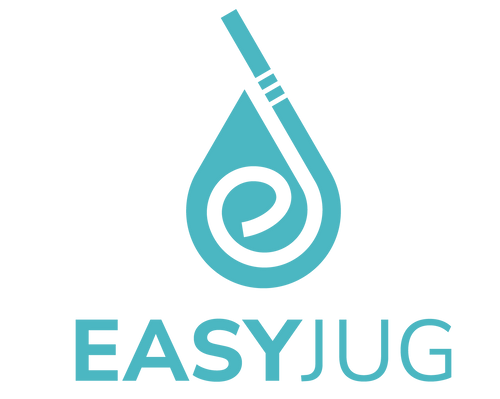Welcoming your little one into the world is a momentous occasion, and now that you're breastfeeding, you might be wondering, "How much water should I drink while breastfeeding?" Well, you've come to the right place. In this blog post, we'll delve into the importance of staying hydrated during breastfeeding and provide you with valuable insights on ensuring you're getting enough fluids to support both your own well-being and your baby's nutrition.
Breast Milk Production and Hydration
Breast milk is a miracle of nature, and your body works tirelessly to provide your baby with the essential nutrients they need. What a new mom may not realize is that human breast milk is composed of around 87% water. This high water content means that adequate hydration is crucial for maintaining a healthy milk supply.
So, how much water do you need? The general rule of thumb is to drink enough fluids to quench your thirst and ensure your urine is pale yellow, like the color of straw. The Institute of Medicine recommends an average daily water intake of about 91 ounces (2.7 liters) for lactating women. However, this amount can vary based on factors like your body weight, activity level, and the weather.
Some women stop breastfeeding because they struggle with milk production. However, they may not be drinking enough water which can impair milk supply.
There are several known factors that affect milk production like stress, a healthy diet, sleep, formula supplementation, and the amount of breastfeeding/pumping.
We lose excess water throughout the day from sweat, urine, feces, saliva, breathing, and human lactation. In hot weather, we lose more water to sweat. Childbirth also releases extra fluids, “goodbye amniotic fluid!”
When we breastfeed, we lose fluid.
You need to replenish your body with plenty of fluids or you may experience symptoms of dehydration like headaches, muscle pain, fatigue, or constipation. Other signs of dehydration include dry mouth, lethargy, low blood pressure, decreased urination, and poor skin health.
Thirst Cues and Signs of Dehydration
Your body is a marvelous thing, and it usually sends thirst cues when you need to replenish fluids. Pay attention to these cues, as they are your body's way of telling you it's time for a drink. Additionally, keep an eye on the color of your urine. Dark yellow or amber-colored urine could be a sign of dehydration, while pale yellow indicates adequate hydration.
It's essential to stay ahead of dehydration, as it can lead to low milk supply, fatigue, and even urinary tract infections. The recommended water intake will vary from person to person. A great option is to start with the average daily water intake of 2.8 liters and then monitor urine color to ensure it is pale yellow. If it starts to get darker, then drink extra water.

What Should You Drink?
Pregnancy and labor can also affect your electrolyte balance. Try adding a squeeze of lemon and a small amount of salt for a natural electrolyte boost. Electrolytes are important because they assist with muscle contraction, nerve movement, and heartbeat. Another good way to get more electrolytes is with coconut water. It contains essential nutrients like potassium and sodium. When choosing coconut water, look at your ingredients to make sure it has no added sugar.
Limit caffeinated drinks like cutting 2 cups of coffee down to 1 or try Momme Coffee which is half caff. Too much caffeine has a diuretic effect and can cause frequent trips to the bathroom.
Avoid excess consumption of caffeinated beverages, soft drinks, and energy drinks, as they can interfere with your baby's sleep patterns and lead to dehydration.
While water is the go-to choice for hydration, there are other options to keep things interesting. Herbal teas, mineral water, and coconut water are great alternatives that can help meet your fluid intake goals.
Not everyone likes the taste of water. Some moms also enjoy a small amount of fruit juice or infused water for added flavor. A squeeze of lemon in your water can be a refreshing and healthy way to enhance the taste of plain water.
EasyJug: The Perfect Companion for Breastfeeding Moms
Now, let's talk about the best way to ensure you're getting enough fluids throughout the day. Meet EasyJug, the hands-free water bottle for breastfeeding women. With EasyJug, you can stay hydrated without missing a beat in your busy breastfeeding schedule. EasyJug is a 2.2 liter BPA free water bottle that provides enough water to support a breastfeeding mom's hydration needs.
With its innovative design, you can breastfeed and hydrate even while lying down. This is a game-changer, especially during the first 40 days postpartum and during late-night feedings.
It's a convenient addition to your hospital bag, providing easy access to hydration during childbirth and postpartum.
More Hydration Tips
- Eat foods with high water content. Fill your fridge with water-rich foods like cucumbers, celery, watermelon, peaches, lettuce, and apples. Opt for soups and salads at lunch. Not only are they important for a balanced diet, but they help you meet your hydration goals.
- Drink an 8-ounce glass of water before each breastfeeding session. Those 8-ounce glasses of water may provide the right amount of water to prevent thirst during your breastfeeding session.
- Keep cups of water throughout the house as a visual cue to drink more water. Check out the 8 Best water bottles for breastfeeding
- It’s a great idea to keep bottled water in your diaper bag for any busy mom on the go. That way you can meet your water needs anywhere.

Conclusion
Both pregnant women and breastfeeding moms need more water than the average person.
As a breastfeeding mother, taking care of your body is vital not only for your own well-being but also for your baby's nutrition. Remember that staying hydrated is a great way to ensure you have the energy and vitality to meet your baby's needs.
By following the recommended amount of water intake, paying attention to thirst cues, and using a water bottle like EasyJug, you can enjoy the incredible journey of motherhood with confidence, knowing you're giving your baby the best start possible.
If you have trouble breastfeeding, please contact your health care provider. Lactation consultants are also a great resource and are often covered in many insurance plans.



